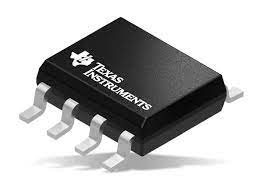

By Region: North America - 37%, Asia Pacific - 40%, Europe - 15%, and RoW - 8% Texas Instruments (US), Analog Devices (US), Skyworks Solutions, Inc.By Designation: C-Level Executives - 32%, Managers - 40%, and Others- 28%.By Company Type: Tier 1 - 45%, Tier 2 – 35%, and Tier 3 - 20%.A variety of executives from key organizations operating in the digital isolator market were interviewed in-depth, including CEOs, marketing directors, and innovation and technology directors.
#Global digital isolator market drivers
In order to protect these electric drivers from surges, digital isolators are necessary. In order to run automation equipment, electric drivers must be used. As the deployment of industrial automation solutions and systems increases, the market for digital isolators for the industrial vertical is also expected to grow. Their purpose is to protect users and industrial equipment from ground differences, noise, and voltage fluctuations. Industrial equipment often requires digital isolators.

“The industry vertical likely to dominate the digital isolator market from 2022 to 2027” According to market estimates, the industrial segment will account for the largest share of the digital isolator market in 2022 and this trend is expected to continue during the forecast period. For instance, Texas Instruments offers an ISO1042-Q1 device, an automotive isolated CAN transceiver with 70 V bus fault protection, and a flexible data rate. Texas Instruments, Broadcom, and Silicon Labs are key players that offer digital isolators for CAN isolation. CAN bus is used in electric and hybrid electric vehicles wherein the galvanic isolation barrier is critical between high- and low-voltage parts, therefore digital isolators are being used to provide CAN isolation. It protects devices from overvoltage transients between the CAN bus cable network and the systems connected to it.
#Global digital isolator market serial
CAN bus is an International Standardization Organization (ISO)-defined serial communication bus, originally developed for the automotive industry to replace the complex wiring harnesses with a two-wire bus. CAN is generally used in the automotive and aerospace industries, primarily for automation applications. The increase in the use of CAN bus in electric and hybrid electric vehicles, has fueled the application of digital isolators for providing galvanic isolation in CAN buses. “CAN Isolation Application to register highest growth rate during the forecast period.” The controller area network (CAN) isolation segment is estimated to grow at the highest rate during the forecast period. These are the key reasons for the largest size of the capacitive coupling segment of the market. Isolators based on capacitor coupling isolation type are available at comparatively low prices in the market. Isolators based on capacitor coupling isolation technology are available at comparatively low prices, making it one of the key reasons for the large segment size. Industrial and healthcare verticals can benefit from digital isolators based on capacitive coupling since they use low power and enable simple protection of systems as opposed to electrostatic discharge (ESD) and other electrical surges. Compared to optocouplers and other systems, these contemporary designs have advantages, including low power dissipation, small boards and modules, simplified system designs, and high-speed operations. Modern capacitive-isolated digital input receivers can also help simplify designs of systems wherein digital isolators are to be used. This may result in issues in high-voltage transmission lines. However, using an electric field for signal transmission increases signal distortion when an external electric field is applied. It is immune to magnetic noises and supports high-speed data transmissions. Capacitive coupling offers high efficiency in terms of the size of digital isolators and energy transfer. “Based on the technology, capacitive coupling to account for the largest share during 2022–2027.” The capacitive coupling segment is estimated to account for the largest market size in 2022. These factors will drive market growth throughout the forecast period. Digital isolators for gate drivers are increasingly preferred for industrial motor drives. Further, due to noise-free electronic properties electrical and electronic devices are gaining traction as compared to conventional isolation technology. Digital isolators are emerging as substitutes for optocouplers which is fuelling the market growth. The global digital isolator market size is estimated to be USD 1.8 billion in 2022 and projected to reach USD 2.7 billion by 2027, at a CAGR of 8.3% during the forecast period.


 0 kommentar(er)
0 kommentar(er)
